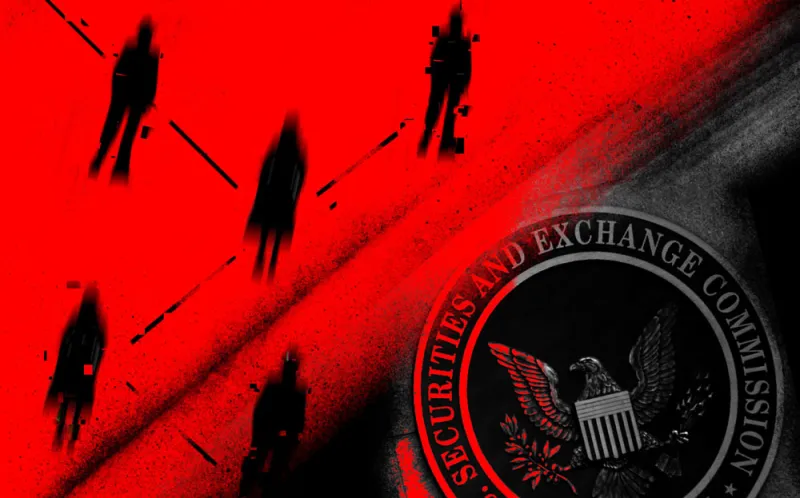In 2019, the number of Ponzi schemes uncovered by the Securities and Exchange Commission surged 30% as investors lost $3.25 billion, the most in nearly a decade. The jump in cases was particularly concerning given that it broke a multi-year downward trend.
In February 2020, despite a rising number of coronavirus cases and deaths, stocks barreled higher to then record highs. But by March 23, widespread fear that the novel coronavirus would debilitate the U.S. economy torpedoed stocks. The Standard & Poor’s 500 plunged 34% in just over a month — the fastest bear market ever.
Past bloodbaths suggested that more Ponzi schemes could be uncovered. In 2008, when the S&P 500 tumbled 38.5%, redemptions jumped and within ten months three of the largest Ponzi schemes in history collapsed, costing investors about $25 billion.
[Like this article? Subscribe to RIA Intel’s' thrice-weekly newsletter.]
“Like we have seen with previous market-moving events, the sharp downturn in financial markets emanating from the coronavirus pandemic is likely to cause an uptick in the collapse and/or discovery of Ponzi schemes,” Jordan Maglich, attorney at Tampa, Fla.-based Buchanan Ingersoll & Rooney and founder of Ponzitracker, a legal blog focused on Ponzi schemes, told RIA Intel last April.
However, an expected increase in Ponzi scheme cases in 2020 never materialized. Did criminals suddenly discover virtue? Hardly. Just as Covid-19 crushed restaurants, the travel industry, and numerous other sectors, it didn’t spare government workers.
“The regulators, like virtually every other segment of the population, were affected in some way by the pandemic,” said Maglich, whose new report on Ponzitracker indicates that nearly 30% fewer Ponzi schemes were uncovered in 2020 than a year earlier.
“The data suggests that financial fraud detection also experienced disruption, with the number of Ponzi schemes uncovered during the first half of 2020 marking the lowest six-month figure during the preceding 11-year period compiled by Ponzitracker. And as a result of many parts of the criminal justice system shutting down, the number of prison sentences handed down to Ponzi schemers also was the lowest on record during the last 11 years — by nearly 30%.”
Ponzi schemers caught another significant break as stocks rebounded dramatically. The S&P 500 stormed higher to end 2020 with a 16.3% gain. And the small-cap Russell 2000 Index more than doubled from its March low to end the year 18.4% higher. The broad-based market rally “appeared to minimize any window of increased redemption requests that are typically the death spiral for a Ponzi scheme,” Maglich said.
However, recent developments suggest that Ponzi schemers’ good luck streak might be ending.
In the last four months of 2020, authorities brought civil or criminal charges against 20 suspected Ponzi schemers, according to Maglich. Annualized, this matches the 60 identified in 2019.
“Authorities have become more comfortable operating in the current environment. A return to the near-standstill seen in the spring is unlikely,” he added, while citing increased enforcement.
Maglich argues that “a rare investment alert” by the SEC in mid-December indicates that the recent increase in cases will likely remain elevated this year. Though these investor alerts have historically lacked urgency (typically providing updates on existing cases or areas of enforcement focus), the new warning, titled “Investment Scam Complaints on the Rise,” points to something more serious.
“The SEC has recently experienced a significant uptick in tips, complaints, and referrals involving investment scams. The SEC’s Office of Investor Education and Advocacy urges investors to be on high alert in order to protect themselves and others from becoming victims of investment fraud,” the agency wrote.
While the frauds listed in the alert include fake certificate of deposit (CD) scams, bogus stock promotions, and affinity frauds, Ponzi schemes top the list, Maglich noted.
“Even with the market’s quick recovery, the increased pace at the end of the year coupled with the SEC’s issuance of the investor alert sounds an ominous warning bell that regulators may have their hands full in 2021."
Greg Bartalos (@gregorianchance) is editor of New York City-based RIA Intel.
Subscribe to RIA Intel’s thrice-weekly newsletter and follow the publication on Twitter and LinkedIn.






